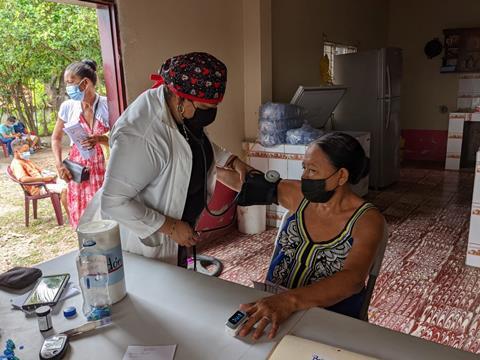Multinational extends medical assistance to Honduran communities during melon off-season

Fyffes and its Honduran melon subsidiary Sol Group have launched a series of ‘Community Medical Brigades’ to reach community members and seasonal workers surrounding their farms during the off-season.
The project began this month in Colonia Buena Vista, Marcovia, where 79 people have already received medical care, and it will be extended to another 14 communities in the areas of Choluteca and El Paraíso in the coming weeks.
The Community Medical Brigades are expected to reach a minimum of 1,000 people –approximately 500 children, and 500 adults over 40 years of age – with symptoms of seasonal illnesses and/or diagnosed with underlying illnesses.
Sol Group has four medical clinics on or near its farms in Honduras (three in Choluteca and one in Ojo de Agua), three doctors on the payroll, and five ambulances paid for by the company, including three new ambulances this year, as well as four nurses who are contracted during the season.
One of the main reasons to implement the new Community Medical Brigades is to extend medical care to community members, particularly temporary workers who find it difficult to access the medical clinics on the farms during the off-season.
The Community Medical Brigades include health awareness talks, prevention medicine and care focused on underlying diseases (dengue, diabetes, hypertension, kidney failure), common seasonal conditions (respiratory and gastrointestinal infections), as well as awareness of the benefits of vaccination against Covid-19.
Sustainability manager and project leader Michael Fletes commented: “In September 2021, we conducted a Community Needs Assessment, interviewing 900 people from 14 different communities in the region surrounding our melon farms in Choluteca.
“Community members told us that medical infrastructure in the region was not adequate. This project is especially important for women with underlying diseases whose opportunities to access medical services are limited and must leave the community to seek medical assistance, having to invest additional time and money to do so.
“We believe that this project will allow us to better understand current health challenges and, in the future, evolve towards programmes with a more preventive and awareness approach for our prioritised communities.”



